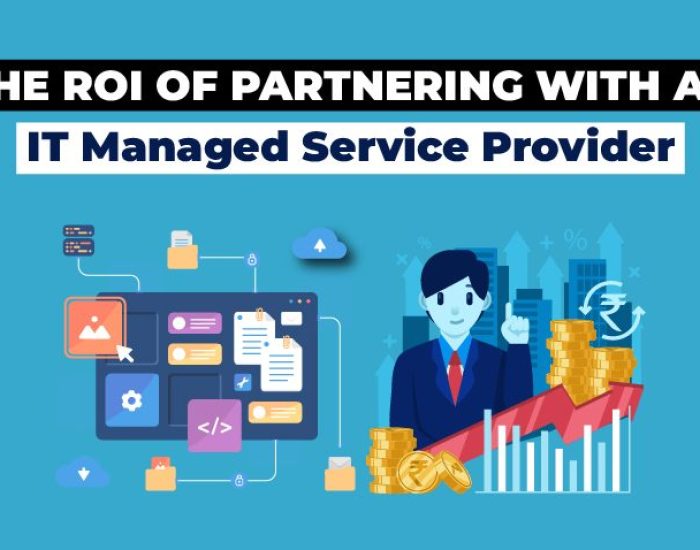Hidden Costs of the Cloud
What You Need to Know
The cloud has undoubtedly transformed the way organizations operate.
The cloud offers many benefits, including on-demand resources, scalability, and cost-efficiency. Most businesses nowadays have shifted to either a hybrid or a hybrid private cloud architecture. However, cloud adoption hasn’t been smooth for everyone.
Several hidden costs of the cloud may catch you off guard if you’re not fully aware of them. Understanding these costs is essential to budget accurately for your IT services in the long run.
Welcome to another video in our series Uptime with Richard Luna, where Richard Luna, CEO of Protected Harbor, will discuss the cloud’s actual costs. Below, we will touch on some of the hidden costs of the cloud, how they can impact your business and what you can do about it.
What Are the Hidden Costs of the Cloud?
As we’ve already established, the cloud has some hidden costs that many companies are unaware of. This can affect their budgeting, decision-making, and long-term strategy. Business leaders may alter their entire IT strategy based on these hidden costs. From a financial standpoint, hidden fees can include data transfer, cloud utilization, migration, and business process reengineering costs.
Data Transfer Costs – These are costs associated with transferring data between on-premise resources and cloud-based resources. Depending on where your data is stored, you may have to incur data transfer costs.
Cloud Utilization Costs– Public cloud service providers demand a fee each time a business tries to access its data. Cloud companies are betting on huge demand despite the low fees, which occasionally amount to cents per hour.
Migration Costs – Organizations migrating their applications to the cloud may incur costs for retooling legacy applications for the cloud.
Business Process Reengineering Costs– Organizations occasionally anticipate that a move to the cloud will boost overall functionality and efficiency. However, the reality is any problems that may have existed before a cloud move will persist there. The initial transformation might be finished, but continuous business modifications will still be required, increasing spending.
Understanding Cloud Offerings: Comparing Google Cloud Platform and Amazon Web Services
Regarding cloud offerings, two of the most popular options are Google Cloud Platform (GCP) and Amazon Web Services (AWS). Both platforms offer various computing services, including virtual machines, edge locations, and private IP addresses. However, there are some differences to be aware of. For example, GCP offers VPC peering connections that allow customers to connect to their own premises data center.
In contrast, AWS offers Amazon CloudFront, a content delivery network that can speed up website loading times. In terms of data transfer pricing, GCP charges $0.01 per GB, while AWS charges $0.09 per GB for the first 10 TB. It’s important to consider these factors when deciding which platform to migrate to the cloud and any additional data transfer charges that may apply.
 Private Cloud: A Better Alternative
Private Cloud: A Better Alternative
Richard recommends, “To overcome some of the hidden costs of the cloud, organizations can opt for the private cloud.” A private cloud is an on-premises version of the public cloud where IT organizations control access, security, and the level of scalability.
A private cloud is an isolated environment within your organization’s data center. It has its dedicated hardware, software, networking resources, and other utilities. A private cloud may incur some hidden costs. But these hidden costs are typically less than those of public cloud services.
You can also use a public-private hybrid cloud. This combines a public cloud platform and a private cloud environment. A hybrid cloud is often used to host sensitive information because it’s more secure than a public cloud. You can also host non-sensitive information on a public cloud platform while keeping your critical data private.
Conclusion
Many cloud providers offer their services, but not all are the same. If you want to avoid hidden costs and stay safe, you need to move to a private cloud. This way, you will have complete control over your data without worrying about any unexpected charges. With a private cloud from Protected Harbor, you can optimize your IT investments, avoid data breaches, and save money.
At Protected Harbor, we keep up with the latest technology, continuously invest in our people and infrastructure, and always look for ways to improve. We are experts in cloud implementation, partner with the biggest names in the software industry, and are dedicated to delivering a superior experience for every customer. If you’re looking to opt or migrate to a private or hybrid cloud or even other managed IT services, our experts are there to help you.
Contact us today for a free IT audit and cloud consulting!





